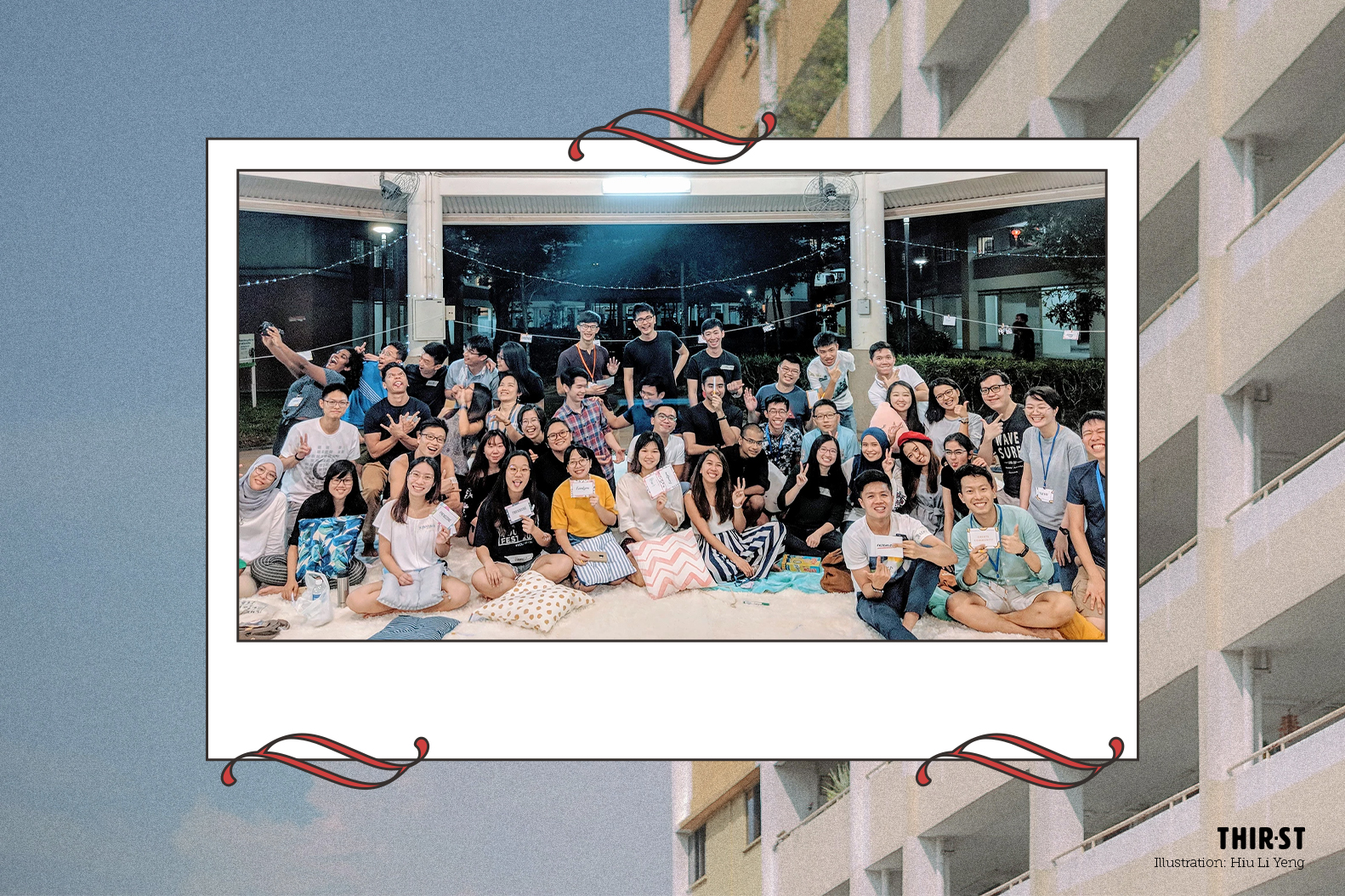Would you think of asking a neighbour if you wanted to borrow a milk frother? Or what if you wanted to order a cake that you know you couldn’t finish alone?
I have to admit that as a millennial, the kampung spirit of sharing baked treats with my neighbour or having casual conversations in the hallway is lost on me.
It was only after participating in a recent virtual gathering conducted by Friendzone that I saw the value of loving my neighbours, literally.
During the online hangout, I got to know people who stayed near me through question cards specially crafted by the Friendzone team. These included conversation starters such as “What do you spend your days doing?” and “What are three topics you are passionate about?”
To be honest, the experience was actually more meaningful than awkward.
Our neighbourhoods have so much diversity, but few of us actually get to experience it.
Catching up later with Friendzone co-founder Grace Ann Chua, the 26-year-old tells me that the idea to do something like this was inspired by her experience during university.
She shares: “The concept of unity was something that came up strongly while I was staying on campus. It was the idea that we are one body made up of different parts. I experienced a neighbourliness and community with people whom I would otherwise never have talked to.
“It made me realise that we live around people who are very different from us – people from different backgrounds, passions, interests, beliefs, networks and skills. But we all became friends because of the very fact that we live near each other.”
After Grace left university, she realised how the strong sense of community she felt on campus was missing in actual neighbourhoods. She also saw that there was a lack of opportunities for young people to get to know each other.
“The reality is that as you grow older, you tend to only meet the same type of people, such as people from the same industries or people with similar hobbies and interests.
“Our neighbourhoods have so much diversity, but few of us actually get to experience it,” she observes.
That’s how Friendzone started.
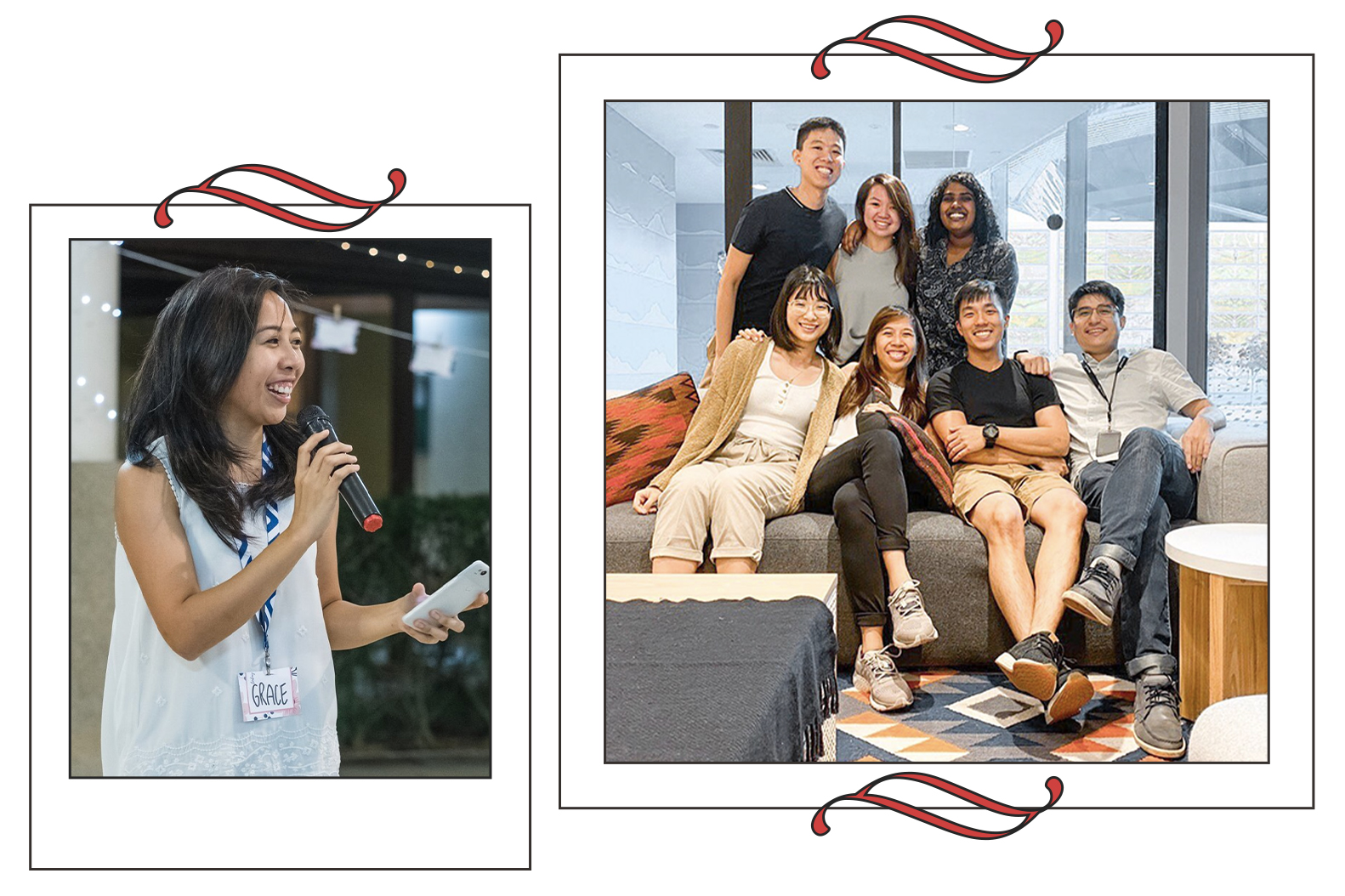
Aiming to build local communities where people feel connected to one another, Grace and fellow founders Valencia and Tham began by booking HDB pavilions and inviting friends and their neighbours to gather around cosy carpets, cushions and engaging question cards.
She says: “Often the standard script of questions Singaporeans ask when they meet someone new is, ‘what do you work as?’ or ‘what did you study?’ I want our conversations to stray away from that because people are more than just their jobs.
Revealing how unnatural and awkward it was to talk to neighbours at first, Grace recalls that it took a lot of courage to step out of her comfort zone to say “hello”. But with time, it became easier.
She shares: “My struggles led me to have this conversation with God. I was asking God, “why does unity matter?” He revealed to me that unity matters because we can direct resources and receive support.
“When we allow ourselves to be vulnerable with others, we open ourselves up to receive from others. Sometimes people are too proud to ask for and receive help, or they’re fearful of rejection.”
Being open also teaches us to be generous with our resources and experiences – to extend what we have to bless the people nearby.
WE’RE NOT MEANT TO DO LIFE BY OURSELVES
“A friend once shared with me how one day, he needed a hammer. The first thought he had was to go and buy a hammer. It never crossed his mind to ask his neighbours if he could borrow a hammer, which we both thought was a reflection of many youths’ mindsets today,” Grace says.
What people don’t realise is: We have access to a greater community.
“We’re not created to do life alone – and we can’t,” she says. “People should remember that they have access to these channels, and you can receive if you ask.”
Sharing from her own experience, Grace says: “I had asked whether anyone had a milk frother I could borrow in my own Friendzone neighbourhood chat group. Three people responded, and I managed to borrow one.
“Another time I also asked whether anyone wanted to split ordering an entire matcha cake with me because I couldn’t finish an entire cake. It would also split the delivery cost. A few people responded and we were able to enjoy an entire matcha cake together.”
But Grace is quick to point out that it isn’t just about saving money.
“It’s the fundamental idea of caring for another person,” she says. “We’re called to love our neighbours. How can we love them if we don’t know who they are?”
As such, Friendzone is meant to be a platform for facilitating connections between neighbours.
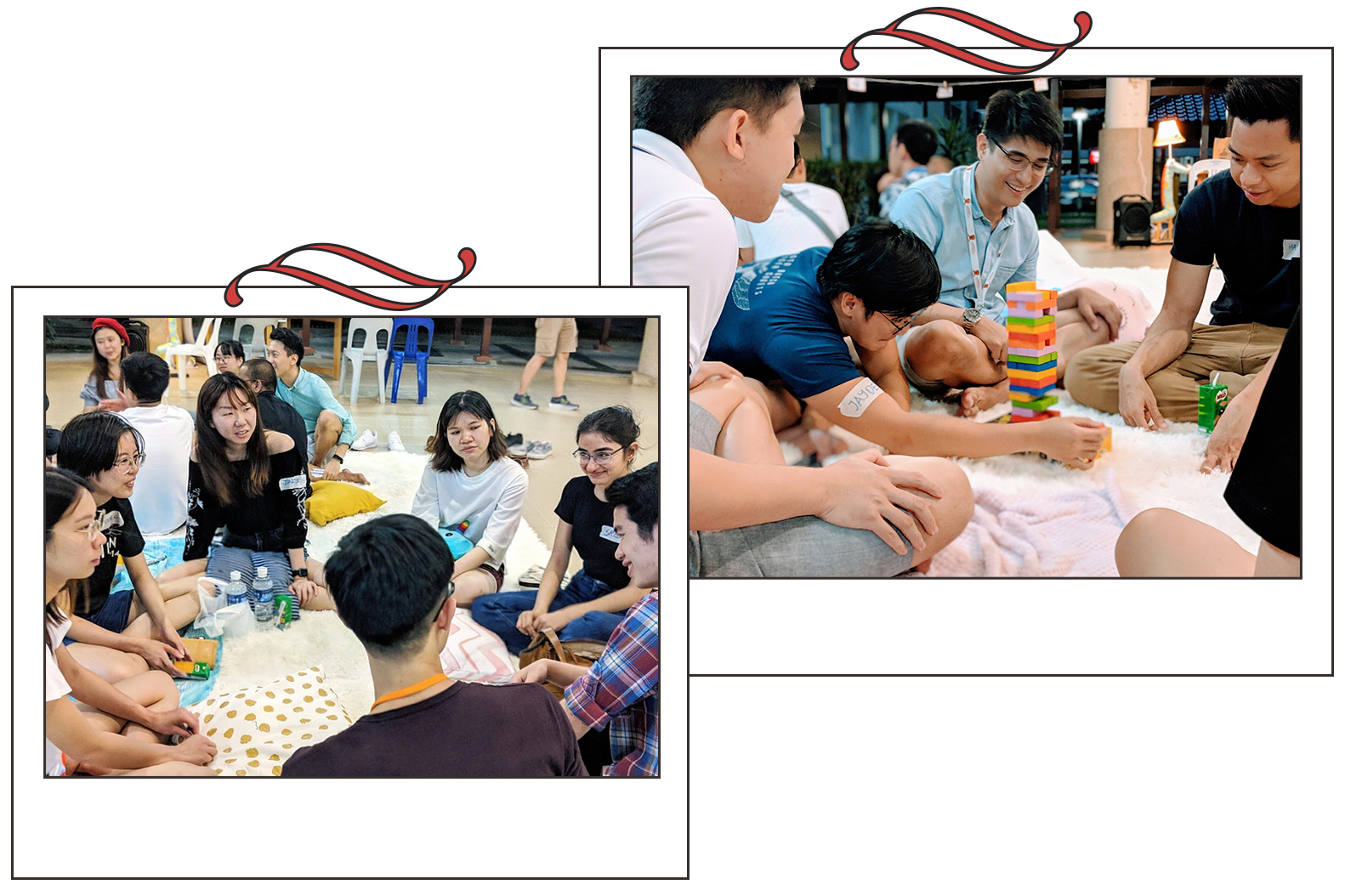
Grace says: “Through ice breakers and facilitated conversations, strangers begin to know each other’s names, passions and struggles. In some groups, they even share personal advice and perspectives on issues like dating, family and finances.
“It’s powerful when we allow ourselves to be vulnerable in our communication with others. This act of humility enables us to not only gain perspective we never knew we needed, but also give what we have to others.”
Sharing a few success stories, she tells me that she knows of two young adults who met through Friendzone and ended up volunteering together, as well as another two youths who hit it off and decided to sign up for a dance package.
There was also a guy who invited a bunch of neighbours he met through Friendzone to his 21st birthday party.
“The hope I have for Friendzone, as the name suggests, is to challenge the younger generation’s mindset to re-envision our neighbours as our friends and not just people we live next to,” says Grace.
BUILDING COMMUNITIES THAT CARE
While Friendzone has focused on physical gatherings since its genesis in 2018, the team shifted their neighbourly get-togethers online during the circuit breaker.
“The vision hasn’t changed, but the mechanism to achieve that vision is different,” says Grace, explaining that while the new format has posed some logistical challenges such as people only being able to mingle within their breakout room, going digital also has its benefits.
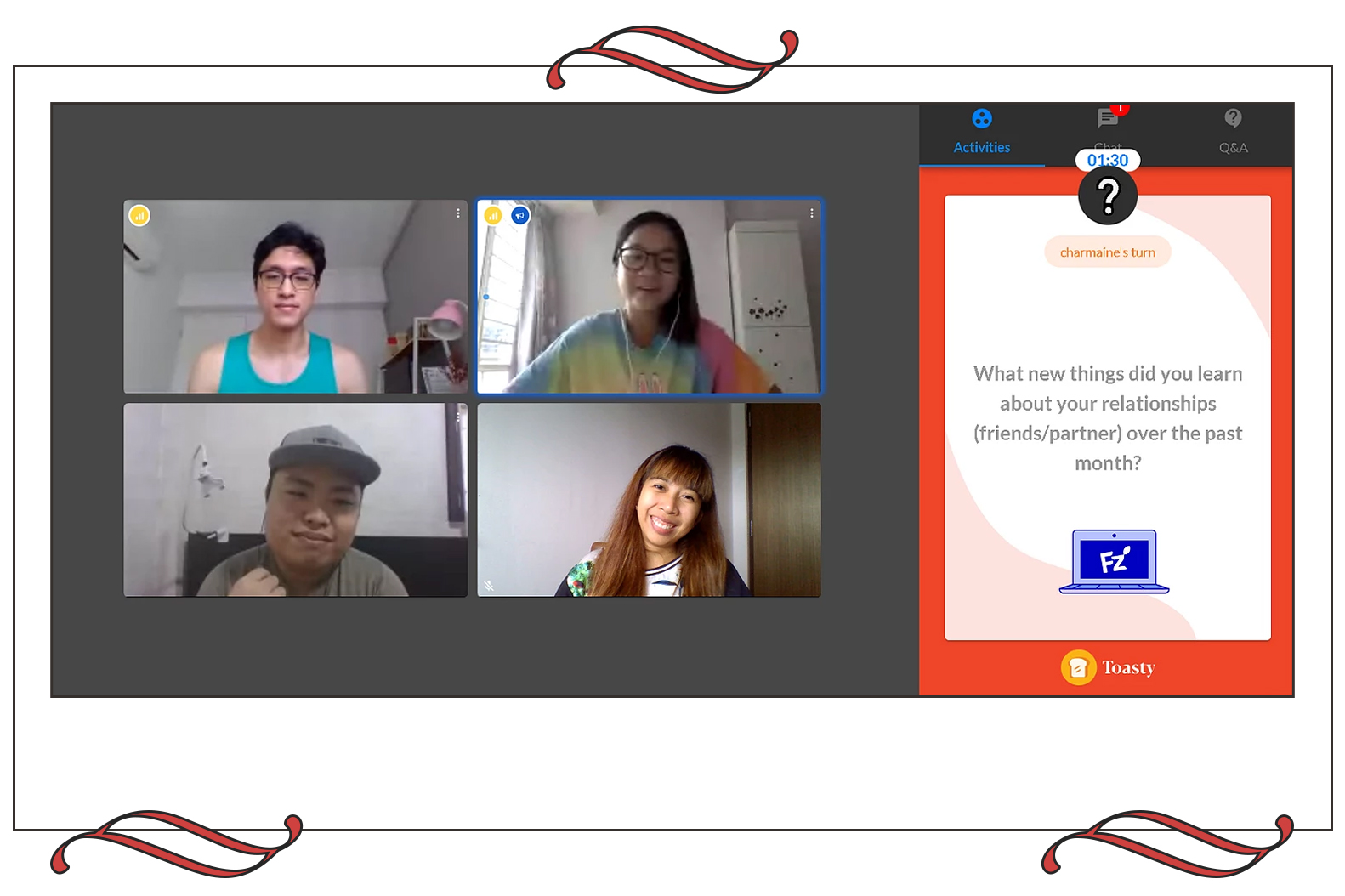
She says: “Before COVID-19 hit, we were only able to do one event per night and run Friendzone in three neighbourhoods. But by shifting Friendzone online, we can cover all of Singapore in a weekend.
“We were able to reach out to this new demographic of people who are more willing to attend online events and are more open to share about themselves online rather than in person.”
Another advantage was how these meetups were able to facilitate the forming of new friendships during a time of social isolation.
As such, Grace and her team realise there is a place for both online and offline connections to be made, and they are exploring how they can continue hosting online gatherings.
“I don’t know what the future holds, but I believe creating a space for communities to be built will always be important – pandemic or no pandemic,” she concludes.
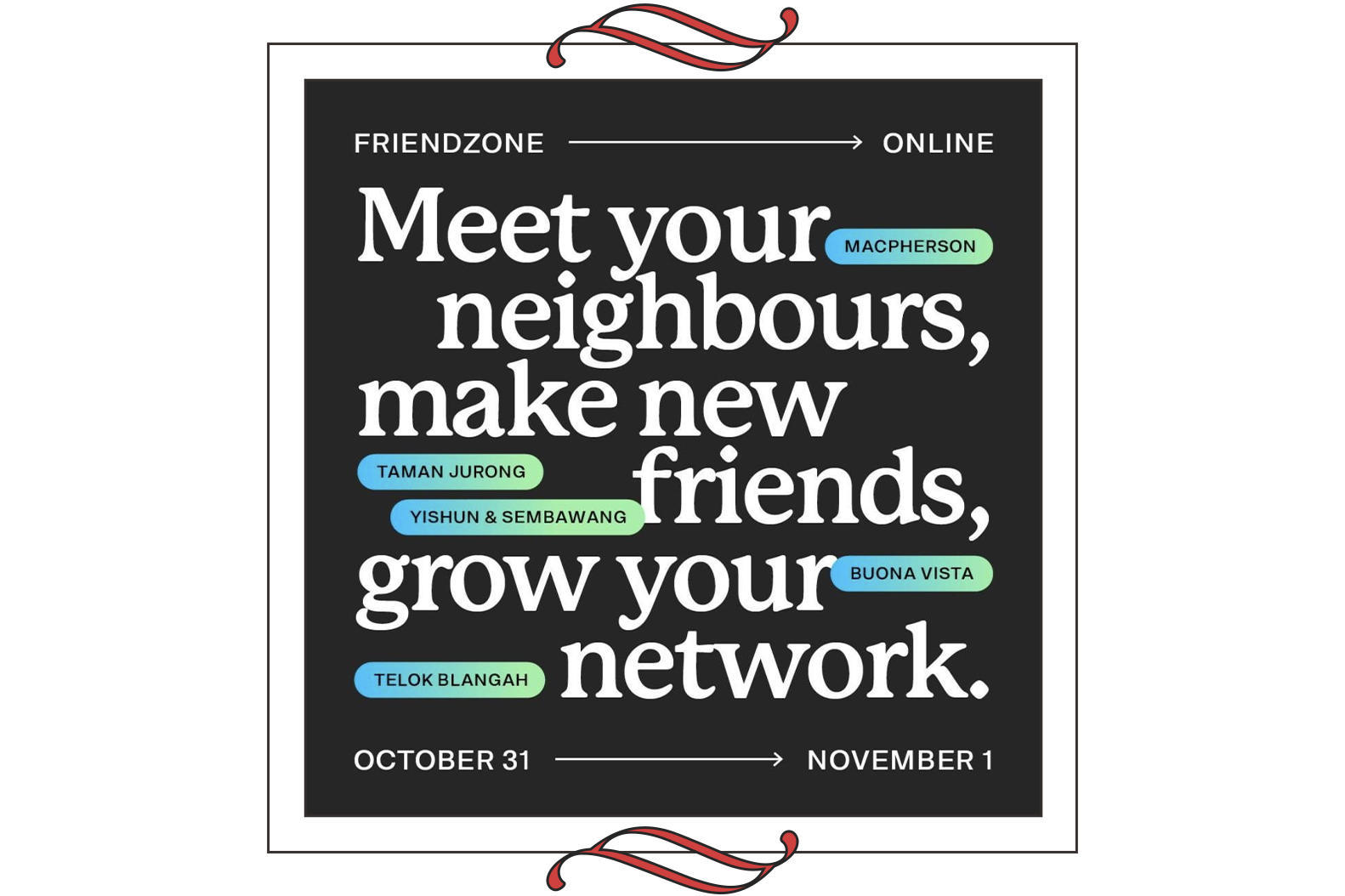
Grace also hopes that the platform will offer more opportunities to make intergenerational connections.
She says: “Connecting with people of a different life stage helps increase our vision of life. It gives us greater clarity on who we are or who we want to be.
“A lot of young people struggle today because they think their lives are very boring and insignificant. But through Friendzone, you get to know more people, and you grow to understand your uniqueness and that you have a story to tell.
“As people share about who they are and their life stories, we become aware of different people of different ages and from different industries. In that process, we come to understand clearly the unique role we play in the greater body. We are all part of a community.”
Friendzone’s upcoming neighbourhood meetups are happening on October 31, November 1, November 7 and November 8 online. Alternatively, join in for a non-neighbourhood-based session happening on the first Friday night of every month.
For more details, follow Friendzone on Instagram. To stay updated on when they are hosting a gathering for your neighbourhood, you can also fill in this Google form.
Main photo: A Friendzone neighbourhood gathering before the circuit breaker. Image source: Friendzone.sg.
- How well do you know your neighbours?
- What does community mean to you?
- What unique role do you think God has created you to play within your community?


